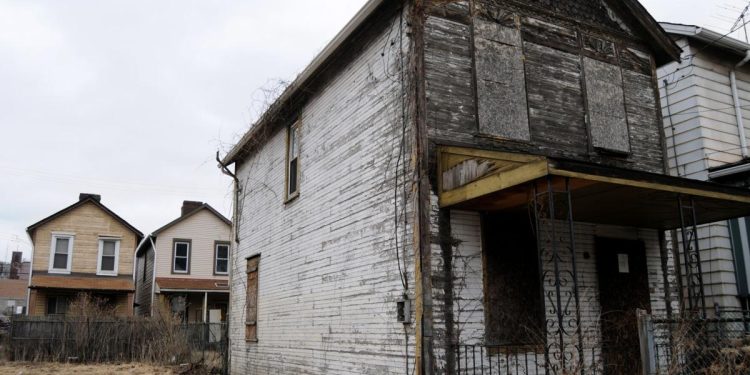By Anthony Hennen | The Center Square
(The Center Square) — In the fight against blight, neglectful property owners may soon feel more pressure to clean up their act – or else lose control to a land bank.
House Bill 1163, now awaiting action in the Senate, would let municipalities take a “use it or lose it” approach to blight. Once a locality declares a property blighted or abandoned, it could then be deemed liable to be acquired by a land bank.
Property owners could appeal, and land banks would not be required to claim the properties, but the reform would put more pressure on landowners – who create an external cost to a municipality and drive down neighboring property values – to comply.
“It is my hope that this jolt to the arm will be the momentum needed for neglectful owners to use a property, sell a property, or redevelop a property,” Rep. Abigail Salisbury, D-Braddock, wrote in a legislative memo. “We need to hold absent and neglectful property owners accountable and give municipalities more ways to reuse and redevelop land.”
Braddock has struggled with its blighted burden for years. The borough released a blight strategy plan in 2017 that estimated almost 11% of its housing was blighted, with another 12% of housing units below average. In 2022, a fire leveled a set of blighted rowhomes and longtime residents complained of lip service from officials to address the problem, but no action.
Neighboring North Braddock has about 350 abandoned properties as well.
Allegheny County, where Braddock is located, already has a vacant property removal program that allows the taking of a property if the owner has been tax delinquent for three years. Acquisitions, however, can be a financial burden on localities.
Letting land banks take on blighted properties wouldn’t be the only recent initiative to deal with blight. In Erie, the city requires landowners of blighted properties to pay a registration fee, but state law and a lack of city inspectors can hamstring action, as The Center Square previously reported.
Statewide, counties can level demolition fees to fund cleanup efforts. Another legislative proposal would create a statewide registry to track property code violations, shaming blighted landowners and warning localities and banks about past problems.
Rep. Salisbury’s bill would require land banks to pay “just compensation of the appraised value” if officials decide to take a blighted property. A property would have to be deemed abandoned or vacant and blighted for five years; be declared a nuisance property for five years; and have a record of building code violations or serious municipal ordinance violations. Municipalities would also have to notify the owner three times before the taking.




